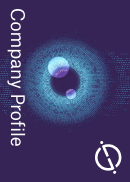
Research has found that the use of robots paired with artificial intelligence (AI) to treat stroke patients autonomously could improve access to and speed of time-sensitive procedures.
The study, published by Kings College London, titled: “Autonomous navigation of catheters and guidewires in mechanical thrombectomy using inverse reinforcement learning,” sought to examine how the autonomous navigation of catheters and guidewires could enhance endovascular surgical safety, reducing procedure times and operator radiation exposure.
The results found that using a system known as inverse reinforcement learning (IRL) to train the AI, researchers saw success rates of 100% and procedure times of 22.6 seconds when using what is known as ‘Reward Shaping’ techniques to train the AI. Similar to reward shaping in animals, the technique with AI involves the system being rewarded with supplemental data as a means of reinforcing behaviour with researchers seeing significant results.
Procedures such as mechanical thrombectomies (MT) are typically used to clear blood vessel blockages with the aim of improving outcomes for patients having suffered from a stroke, with the procedure increasing the chance a patients will be more able to care for themselves afterwards.
PhD student and investigator for the study, Harry Robertshaw said: “Our research uses AI to show, for the first time, how to autonomously navigate medical instruments from the groin to the neck in blood vessels. This is an important part of MT, which removes clots from blood vessels.
“We also explored various methods to teach the AI. We found that using real-life examples to guide the AI, a technique known as ‘inverse reinforcement learning’, improves its performance compared to the best current methods.”
Access the most comprehensive Company Profiles
on the market, powered by GlobalData. Save hours of research. Gain competitive edge.

Company Profile – free
sample
Your download email will arrive shortly
We are confident about the
unique
quality of our Company Profiles. However, we want you to make the most
beneficial
decision for your business, so we offer a free sample that you can download by
submitting the below form
By GlobalData
<!–
–>
Visit our Privacy Policy for more information about our services, how we may use, process and share your personal data, including information of your rights in respect of your personal data and how you can unsubscribe from future marketing communications. Our services are intended for corporate subscribers and you warrant that the email address submitted is your corporate email address.
“Moving forward we can use these new techniques to create models which may be able to navigate unseen patient blood vessels, moving us closer to realising the full benefits of robotic MT with autonomous assistance.”
According to research by GlobalData, the global thrombectomy device market was worth $1.7bn in 2023, and it is forecast to grow to $2.5bn by the end of 2033 with more than 118,000 pulmonary embolism thrombectomy procedures are estimated to be carried out by 2033.
Elsewhere in the field of stroke care and AI, South Korean medical AI startup Heuron has obtained 510(k) clearance from the US Food and Drug Administration (FDA) for its Heuron ICH system designed to diagnose intracranial haemorrhaging. At the same time, HeartBeam has demonstrated that its HeartBeam AI, when applied to vectorcardiography (VCG) technology, outperformed an expert panel of heart rhythm cardiologists in detecting atrial flutter.
<!– –>
- SEO Powered Content & PR Distribution. Get Amplified Today.
- PlatoData.Network Vertical Generative Ai. Empower Yourself. Access Here.
- PlatoAiStream. Web3 Intelligence. Knowledge Amplified. Access Here.
- PlatoESG. Carbon, CleanTech, Energy, Environment, Solar, Waste Management. Access Here.
- PlatoHealth. Biotech and Clinical Trials Intelligence. Access Here.
- Source: https://www.medicaldevice-network.com/news/study-finds-rewarding-ai-can-expand-access-to-stroke-care/




